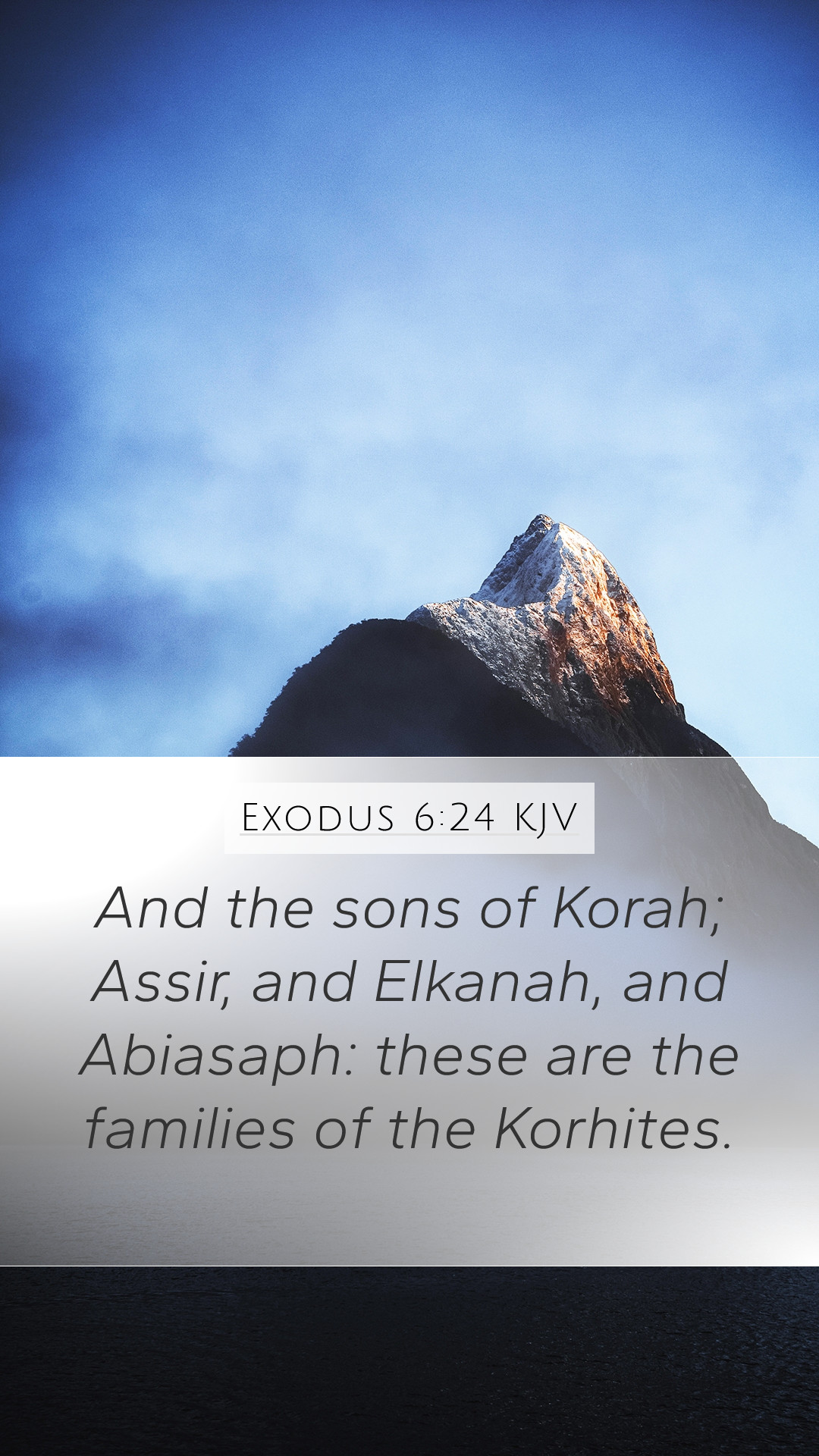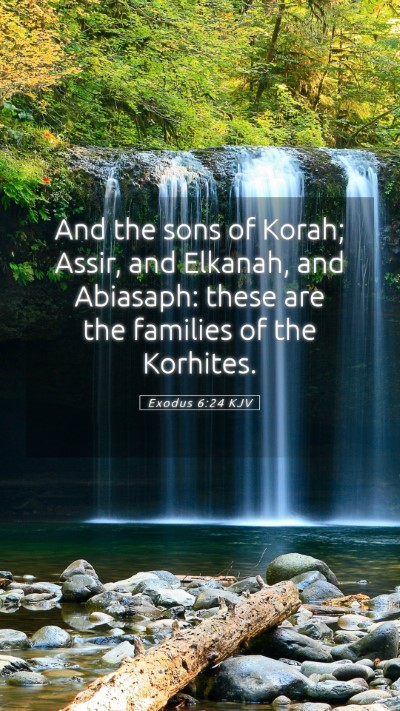Understanding Exodus 6:24
Exodus 6:24 presents a crucial moment in the narrative of the Exodus, focusing on the genealogy of the Levite family, particularly through the line of Korah. This verse elucidates the connection between two key figures: Eliezer and Ithamar, both sons of Aaron, the brother of Moses. This verse's significance is multifaceted, encompassing historical, theological, and practical dimensions that resonate with various themes within scripture.
Exegesis and Commentary
The insights drawn from public domain commentaries provide a richer understanding of this verse:
-
Matthew Henry emphasizes the importance of the Levites in the service of worship. He notes that the genealogical listings are substantial not only for the identification of priestly roles but also for understanding God's covenant with His people. The mention of Korah's lineage is significant, particularly as it foreshadows events in Numbers where Korah leads a rebellion, showcasing both the calling and dangers of priestly responsibilities.
-
Albert Barnes provides insight into the broader significance of the names listed in this verse. He points out that genealogies in the Bible serve to establish a sense of heritage and divine providence. The Levites' lineage, specifically through Aaron, underscores God's choice of a priestly line that is tasked with the spiritual oversight of the Israelite community.
-
Adam Clarke expands on this by discussing the cultural implications of lineage in ancient Israel. He highlights how the focus on Aaron's descendants not only legitimizes their role as priests but also serves as a reminder of the importance of holiness and separation from sin, as exemplified in the subsequent narrative of the rebellion of Korah.
Theological Themes
Exodus 6:24 encapsulates key theological themes, including:
- The Holiness of God: The role of the Levites emphasizes God's desire for a holy people and a dedicated priesthood.
- Divine Selection: God’s choice of specific families for His service reflects His sovereignty and unfolding plan of redemption.
- The Nature of Service: The call to serve in the temple illustrates the seriousness of worship and the responsibilities that come with spiritual leadership.
- Historical Continuity: This verse links past, present, and future events, demonstrating how God's covenant with Israel progressed through their history.
Application and Reflection
The study of Exodus 6:24 encourages believers to consider:
- How do we view our spiritual heritage and the legacy of those who have served before us?
- What are the responsibilities that come with our calling as followers of Christ?
- In what ways can we ensure that we are faithful stewards of our gifts and callings, in light of the historical example provided by the Levites?
Related Bible Cross References
This verse can be cross-referenced with:
- Numbers 16: The rebellion of Korah, which reveals the consequences of not adhering to God's ordained structure.
- Exodus 28: Further instructions on the priestly garments and duties for Aaron and his sons.
- Hebrews 7: A discussion of the priesthood, contrasting the Levitical priestly order with the priesthood of Christ.
Conclusion
In conclusion, Exodus 6:24 conveys deep insights into the structure of Israel’s priesthood and the responsibilities assigned to those within it. The verses challenges readers today to reflect on their roles in the community of faith, remembering that like the Levites, we are called to serve in reverence and dedication, contributing to the body of Christ as a holy and chosen people.
For those engaging in Bible study, this exploration serves as a reminder of the richness of Scripture and encourages deeper engagement with the text, fostering an understanding that can transform how one lives and interacts with the world.


